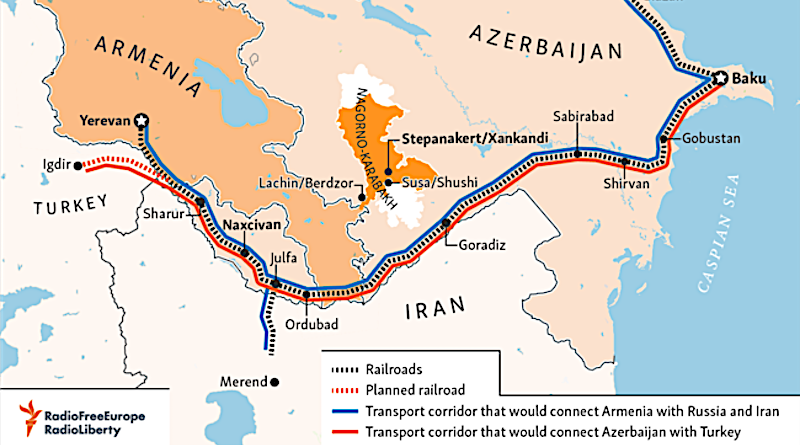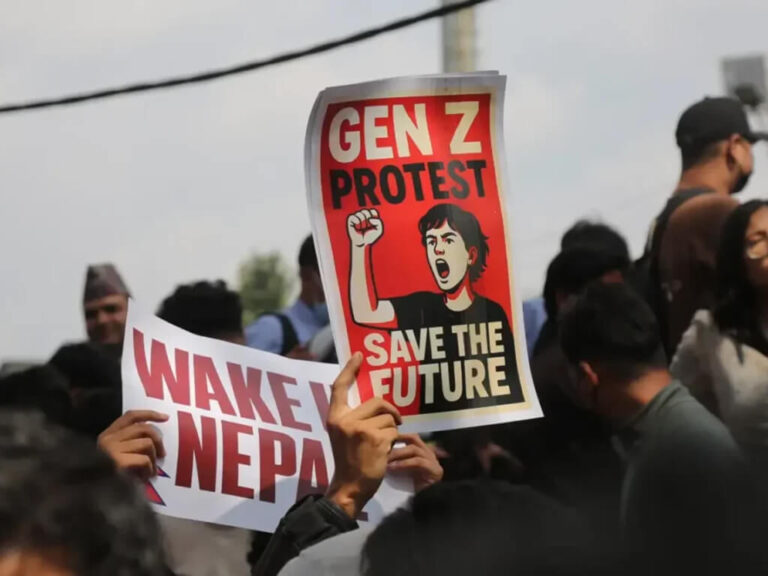Iran has stood firm with Russia and continued its support during the war in Ukraine, despite sharp criticism. While this may partly be due to the limited options under heavy Western sanctions, the relationship between the two countries has been mutually beneficial, helping them navigate their economic struggles. However, every nation ultimately pursues its own interests. Russia, for instance, has shifted its allegiance, seemingly abandoning its long-time partner Armenia to build a closer relationship with Azerbaijan. This new partnership has caused significant disruptions in the region, particularly for Iran, which is in dispute with Azerbaijan and maintains friendly ties with Armenia.
As a result, Iran has begun publicly criticizing the growing Russia-Azerbaijan relationship. Although Iran and Russia are partners in major projects like the North-South Corridor and rely on common markets such as China and India, these emerging tensions could jeopardize their shared objectives. If these disputes continue to escalate, they might undermine both countries’ ambitions and lead to further instability in the region.
Iran’s reformist government has issued a warning to Russia over its support for Azerbaijan in a border dispute, as tensions between Tehran and Moscow continue to simmer. Iranian Foreign Minister Sayeed Abbas Araghchi took the rare step of rebuking Russia after it backed Azerbaijan’s demand for a land corridor along the Armenia-Iran border, which Tehran fears could restrict its access to Europe and beyond. Araghchi emphasized that regional peace, security, and stability are not just priorities but essential to Iran’s national security. He added that any threat to the territorial integrity of neighboring countries or redrawing of boundaries – whether from the north, south, east, or west – is entirely unacceptable and considered a red line for Iran.
Araghchi’s remarks clearly referred to Moscow’s decision to support Azerbaijan’s call for an east-west corridor through Armenia to the Nakhchivan exclave in western Armenia. The Iranian regime has historically opposed Azerbaijani and Turkish efforts to establish the so-called Zangezur corridor, which would connect Azerbaijan directly to Nakhchivan by passing through Armenia’s southern province. Iran fears that such a corridor could cut off its access to Armenia and, consequently, to Europe. Azerbaijan has threatened to establish the corridor by force if necessary, which could potentially trigger another conflict with Armenia. Baku demonstrated its military superiority in September 2023 by swiftly recapturing occupied territories in Nagorno-Karabakh. Earlier this week, Iran also summoned Russian Ambassador Alexey Dedov to express its dissatisfaction with Moscow’s stance, indicating that it did not want conflict on its borders to be encouraged by Russia.

In Tehran, a debate is unfolding over the wisdom of maintaining close ties with Moscow. The tone of Araghchi’s tweet indicates his intention to emphasize the substance of his call for a more balanced east-west policy, which was a central theme of President Masoud Pezeshkian’s successful election campaign. Araghchi’s rebuke has been echoed by others in Iran. Mohsen Rezaei, former commander of the Islamic Revolutionary Guards Corps and secretary of the Expediency Council, criticized the Russian behavior as unacceptable and contradictory to their professed friendship with Iran, calling for clarification of these ambiguities. Ahmad Naderi, a hardliner in parliament, argued that the lack of a strong response to past Russian actions has emboldened Moscow, stressing that strategic cooperation should not come at the expense of Iran’s national interests. Heshmatollah Falahatpisheh, former head of Iran’s national security and foreign policy commission, suggested that Moscow’s stance on the Zangezur corridor might be a pre-emptive move by Putin to obstruct the formation of new communication channels between the Iranian government and the U.S.
The current dispute has significant geopolitical ramifications, especially if it signals that the newly elected Iranian government is prepared to adopt a firmer stance towards Moscow as part of its strategy to rebalance its foreign policy. While Russia and Iran are set to sign a new strategic cooperation agreement, the specifics are still under negotiation.
With Europe imposing sanctions on Russia and seeking alternatives for oil and gas, Iran is emerging as a key player. An EU spokesperson emphasized that relations between the EU and Iran are unlikely to improve if Iran continues supplying drones and other weaponry to Russia for use in Ukraine. In response, Iranian Ambassador to the UN, Amir Saeed Iravani, sent an unusual letter to UN Secretary-General António Guterres, dismissing claims of such trade as baseless. EU foreign affairs head Josep Borrell has engaged with the new Iranian government to address Iran’s support for Russia in Ukraine and to discuss Iran’s nuclear program. This indicates ongoing negotiations and tensions between European and Iranian interests.








